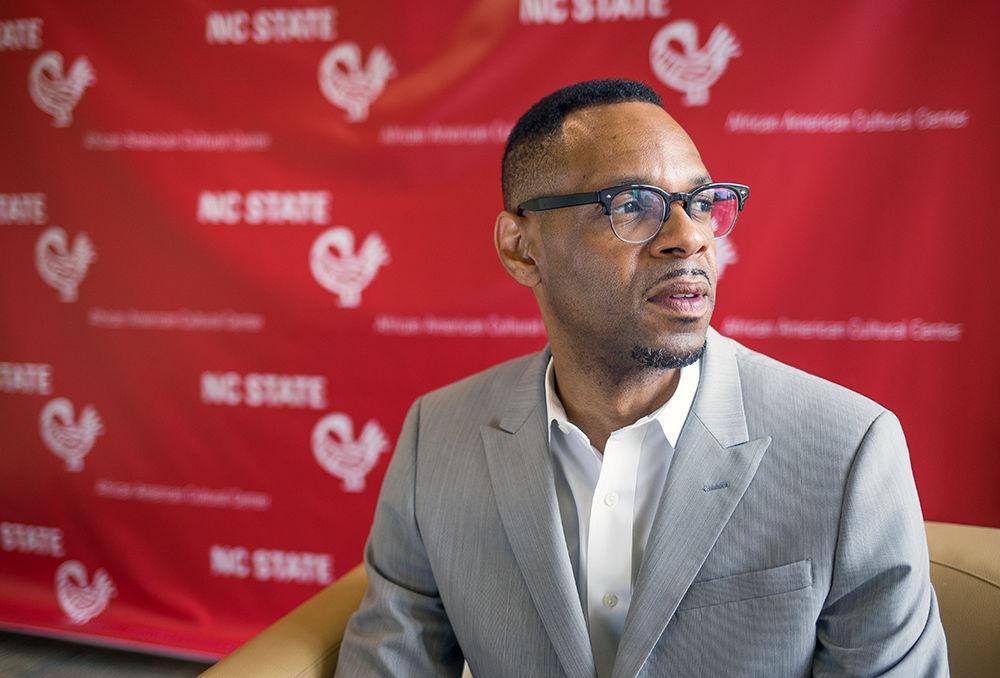The African American Cultural Center at NC State lies in the second and third floors of Witherspoon Student Center. It is an audibly quiet place albeit a very busy one, the spatial sounds characterized by pages turning and rapid keyboard strokes. Flyers and Nubian Message articles line the walls and tables along with a framed poster featuring jazz giants Duke Ellington and Benny Goodman. Being an important hub of education on campus, it is generously filled with the visually appealing and textually engaging content of over a century of history that naturally demands to be known.
This history boasts some of America’s greatest authors, orators, and racial and social equity activists. It is also multifaceted; easy on the eyes but also hard on the heart, energizing to the spirit and most importantly, educational to the learning mind, understanding black history is necessary for the advancement of a nation seeking unification. During February, Black History Month at NC State is a time for students to come to the African American Cultural Center and learn about this very history, from Langston Hughes’ poetry to legendary jazz musician John Coltrane’s biography.
Technician sat down with Moses T. Alexander Greene, the director of the African American Cultural Center, to find out more about Black History Month this year at NC State and what kind of particular actions and thoughts are taking place on campus during this period of cultural appreciation, social justice education and relationship-building dialogue.
What does Black History Month at NC State look like in terms of word and deed?
In terms of word, it is a time of reclamation. It is a time of reclaiming the different parts of the culture. As you know, Representative Maxine coined the term and hashtag, “Reclaiming my time.” You’re going to see a lot of hashtags this month that talk about different things here, like #ReclaimingOurCulture and #ReclaimingOurCoins. In word, it’s about a time of reclamation. In deed, I would point out to this exhibit that we’re having, “The Politics of Black Hair,” where we get a chance to reclaim what the notions of good hair and bad hair are. During Black History Month at NC State University, the deeds are coming through some of the programming we’re having. We’re hoping that by people attending the programming, that they then take the action to their communities. We have everything starting with “Reclaiming,” such as “Reclaiming our Bodies” to “Freedom to be Creative,” “Reclaiming our History” and “Exploring the Intersections of Black Queer Identity.” So, these deeds look like the different lenses of what it means to be of Pan-African descent and allowing people to engage with different key points of that experience.
What Black History Month events in particular should students especially be participating in this year?
I think the idea is that the students, faculty and staff should look to see to what speaks to them from a historical point of view, from a sociopolitical point of view, from an identity point of view or from a gender point of view. At the African American Cultural Center we’re having “Reclaiming Our Coins,” and something called “Ujaama Fridays.” Ujaama is one of the principles of Kwanzaa, which means cooperative economics. So we’re going to have vendors on campus who are selling products that reflect the Pan-African experience, either in clothing or something else. Black history is American history, and I hope that we, as a university, will engage in celebrating it.
What actions should non-black students be taking and what should they be learning during Black History Month?
I would hope that non-black students would, if we truly are a university committed to inclusion, embrace what we say our core values are: inclusion and equity. For black students, the subject this year is reclaiming our time and solidifying our existence in the wake of resistance. Maybe that means understanding why there’s great resistance. Maybe that means further understanding the Black Lives Matter movement and what it means. Maybe that means being challenged to address one’s own privilege and understand what that means. Black History Month should be a time when yes, we learn black history and are paying attention to lives of African-Americans in this country, but we should also be learning our own individual roles within that history.
How do you hope to see Black History Month progress across universities in this modern age?
It is my hope that Black History Month is a time that continues pushing the idea that the black people of this country are viewed as human and that they are seen through their humanity, not simply through their race. I think when you look at the resilience of the people, when you look at the endurance of the people and when you look at the resourcefulness of people, you get a chance to appreciate who they really are as individuals.
This Q&A has been edited for clarity.













